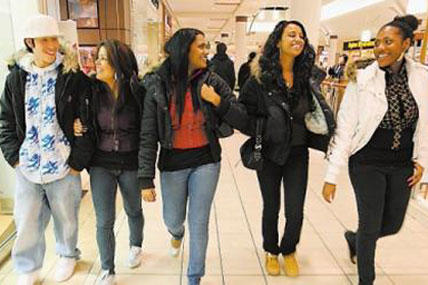Sequestration. Until a few months ago, I'd never heard of the word. Now, it's a regular part of my vocabulary. There's something to be said for a little repetition.
That's the same approach my wife and I have taken with our kids in a quest to build their financial acumen. We -- OK, I -- have repeatedly blasted them with financial terms and definitions, hoping something would stick. Oh, if it was only that easy. The reality is, words can be effective, but nothing works as well as true life experiences to hone these skills.
Now we're emphasizing hands-on training with our teenagers. It's not like we've ignored this approach in the past. In fact, a couple of years ago, I shared a tale of my son's first exposure to the cutthroat financial world.
But, with money management top-of-mind at a national level, my wife and I are laser focused. Here are three ideas we're using to bring words and concepts to life with our teens.
Learning to budget. Wanna go out with your friends? Better check your bank account. Think that new shirt for red day at school is a must? Better check your bank account.
We still cover food, clothing and shelter, but any extras now come out of our teens' allowance. The result? That bag of candy doesn't taste quite as sweet when it puts an outing with their friends in jeopardy. Last week, my daughter scowled when we told her a trip to the movies was coming out of her wallet. Oh well, economic decisions can be difficult. But if the result is that they understand the concept of spending less than they earn, it's a win.
Being a smart consumer. The truth is, impulse buys, lack of research, bad timing and human nature have all led Team Montanaro down the path to bad purchases at one time or another. But we want our kids to do better. Not to date myself, but my research used to begin and end with catalog browsing. Today, our kids are doing a great job comparison shopping, evaluating reviews and checking prices using the internet before making a big purchase. Since they have to save up to make any major purchases (no credit for them!) it gives them time to confirm that their purchases make sense. While it may be detrimental for the U.S. economy, we figure more smart consumers is a good thing.
Paying yourself first. My kids can't even fathom what a powerful weapon this is in the quest to build financial security, but we're working hard to get them to understand it. We set up savings accounts for them. To encourage them to save, we match any money they put in the account. Grandma's $10 check for Halloween magically morphs into $20 with a simple decision. Granted, the "return" they earn on their decision is ridiculously high, and they can't tap the account until college. We're trying to teach them a lesson here, so we need to get their attention. I'm not sure they've fully grasped my discussion of employer-matching contributions, but we're really working on this one.
So there you have it. These aren't the only lessons our kids need to be successful, but I'm certain they do need a mix of knowledge and practice to meet the world head on. Don't fret, I haven't thrown in the towel with the book knowledge part. You should have seen my daughter roll her eyes yesterday morning when I hit her with, "What's a bond?"









